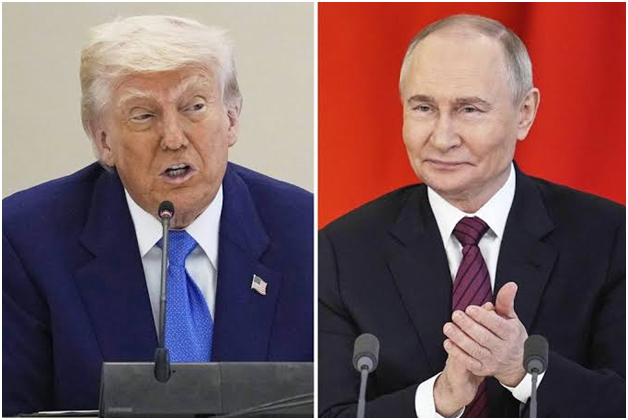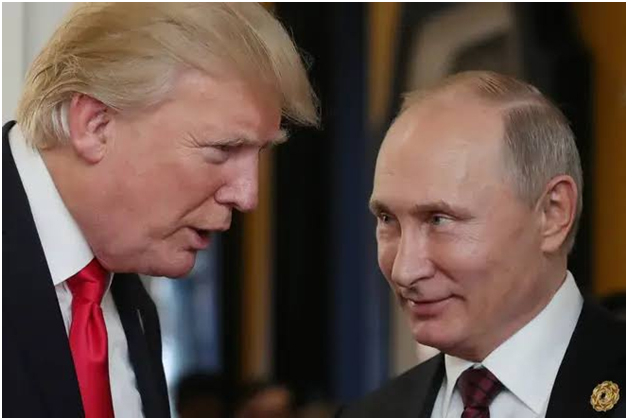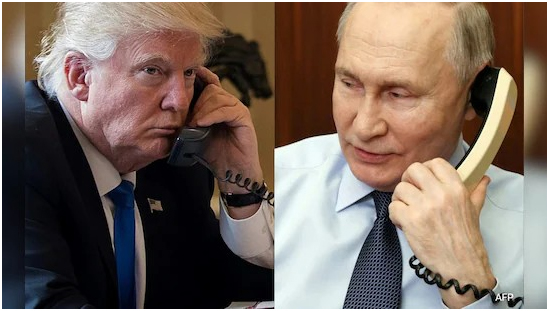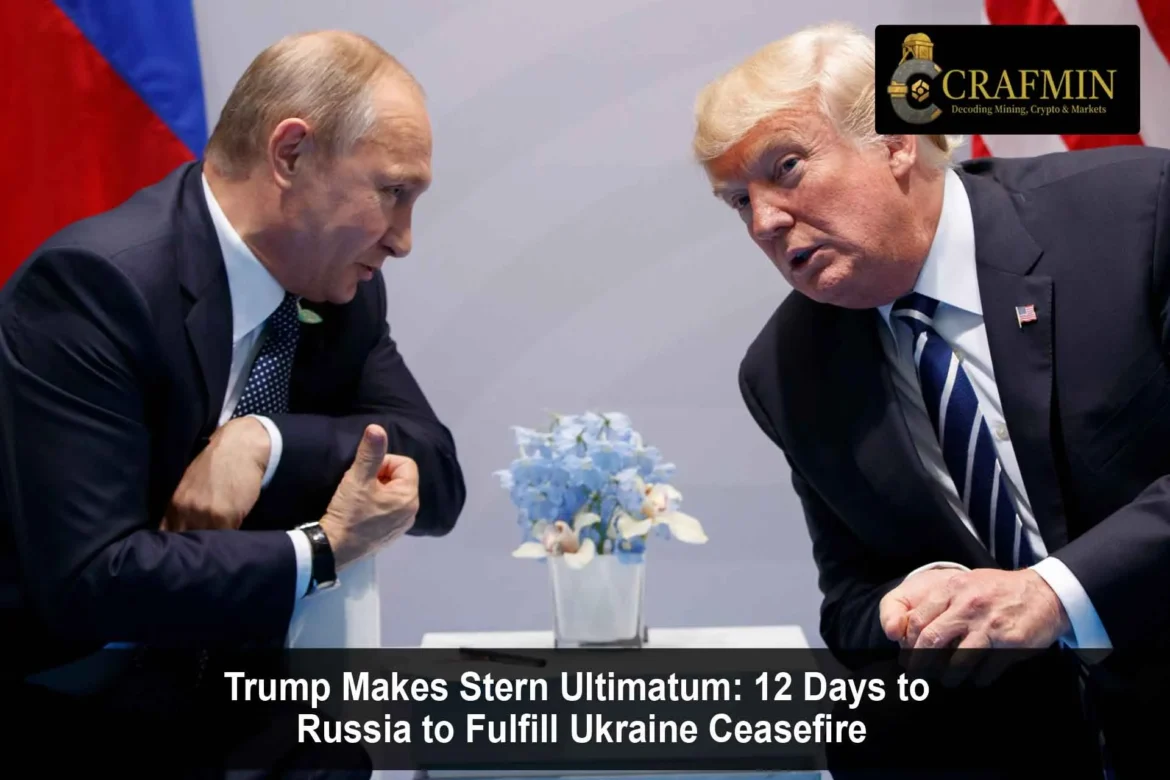
Source: Youtube
In a theatrical gesture, former US President Donald Trump issued an ultimatum to Russia to make great strides on ceasefire talks on Ukraine within a 10 to 12-day deadline—or else accept severe new sanctions.
Addressing a Scotland press conference, Trump made it clear that lip service payment to diplomacy alone won’t do. He demanded that Moscow must deliver on promises of ceasefires or “secondary sanctions” will be applied—not just against Russia but against parties worldwide engaged in trading oil and gas connected to the Kremlin.
Key Facts Straight Away
Trump signaled the talks had to turn into actual actions within 10 to 12 days, scaling back on an earlier 50-day deadline.
Unless things move, he warned against sanctions on third-party buyers of Russian hydrocarbons and tariffs on international partners of Russia.
Russian President Vladimir Putin reacted with caution, suggesting he still was optimistic on the continuation of talks based in Istanbul but refused to commit to the ceasefire or the withdrawal of troops.
Ukrainian President Volodymyr Zelensky welcomed Trump’s urgency as timely and inevitable in the wake of rising civilian casualty counts and deadlocked diplomacy.
Why This Ultimatum Changes the Game
This new deadline is a sign of more impatience on the part of Trump and his Western allies. A more compressed schedule puts more pressure on Moscow—and raises stakes behind diplomatic placeholders. Ukraine, hanging by knife-like attacks, needs real results—not more delays.
Zelensky’s backing is indicative of Kyiv’s hunger for foreign assistance based on aggressive action. To him, Russian deafening silence must be answered by the West advancing in solidarity.

Source: Getty
Ukraine Prepares for More Attack Barrage
Even amid diplomatic tensions, Russian forces intensified airstrikes and drone strikes against Kyiv, increasing civilian casualties. That horrible one—among the deadliest in more than a year—killed dozens of people, including children. Electricity lines were knocked down, and houses were left in ruins. Thousands of civilians are still displaced or trapped.
The attacks highlight the critical timing on Trump’s negotiating schedule. With every passing hour without ceasefire pacts, the humanitarian crisis worsens.
Diplomacy in Disarray
Efforts as early as this year, such as Riyadh and London talks on ceasefire windows and energy corridor deals, never came to endure as permanent peace. The insistence on written assurances—such as holding back NATO and relaxing sanctions—halted the negotiations. Without borders drawn clearly or concessions offered simultaneously, tenuous deals collapsed.
Trump’s new role ratchets up pressure while most Western allies prefer to engage in quieter diplomacy. But with the escalation on the battlefield, pressure politics seems to be on the ascendancy.
Both Sides’ Response

Source: NDTV
Trump’s warning was dismissed by Russian authorities as provocative and destabilising ground. One of the top Kremlin strategists went on to state that the warning would trigger a wider conflict against the United States.
While the officials of Ukraine called for harsher sanctions, more military aid, and a tighter negotiating schedule, Zelensky did not shy away from stating that diplomacy should lead to concrete change—or yield to escalation.
What to Watch Going Forward
| Area of Focus | Key Question Ahead |
| Ceasefire progress | Will Russia make significant diplomatic overtures within 12 days? |
| Sanctions enforcement | Will the US follow through with sanctions targeting third-party energy traders? |
| Allied alignment | Do European partners support aggressive pressure over quiet diplomacy? |
| Human toll | How will escalating violence sharpen international resolve or undermine patience? |
Human Toll Behind the Diplomacy
Behind all the high-stakes political ballet is lives at risk. While talks spin around strategy, residents in Kyiv experience night-time terror bombing, blackouts, and forced displacement, all for global calls for responsibility. In Ukrainian cities, children grasp mothers in bombed-out apartments—repeatedly calling for a ceasefire that, perhaps, may never come.
Zelensky’s words ring true: every delayed day adds grief and grows the humanitarian gap between word and deed.
Also Read: Speakman Wants AI in Schools. Here’s What That Means for NSW
Last Thoughts
Trump’s 12-day threat is politics as theater—it’s also a stern warning and clear that time’s already past. He’s daring Russia to step next and probing if rhetoric will become substantial restraint.
Russia is presented with a choice: accommodate serious diplomacy or invite new levels of international significance. Ukraine is demanding both—ceasefire and response. The world waits to see if pressure will prevail where negotiation so far has failed.
Now the horizon is set: diplomacy starts delivering, or rising costs become the new norm.

